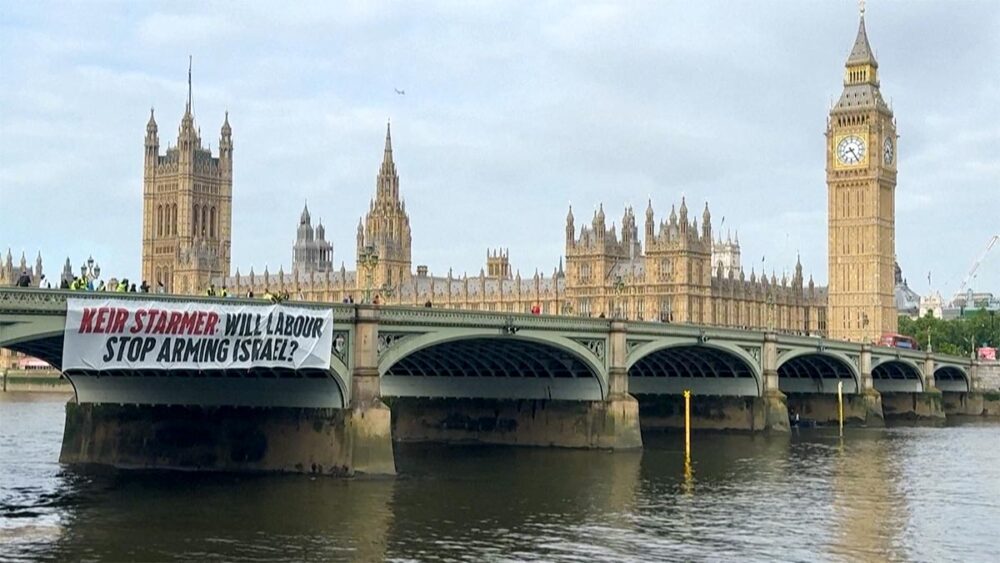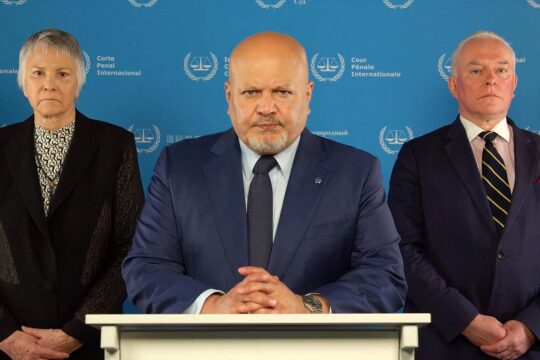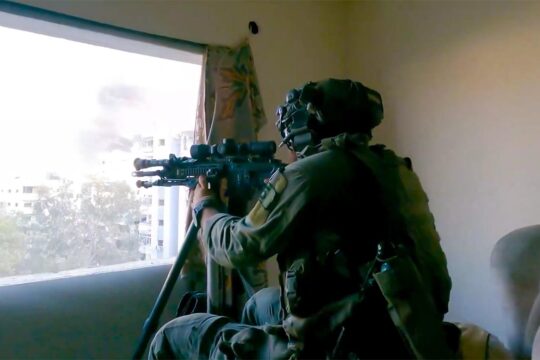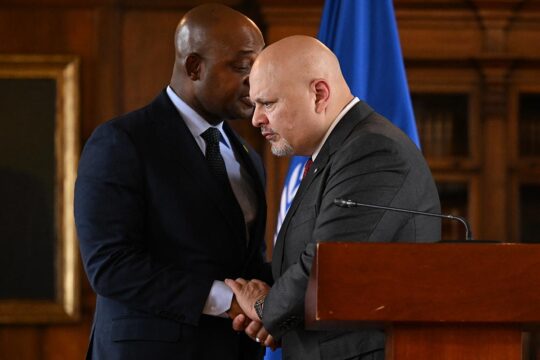“The best way to destroy an enemy is to make him a friend”, says an adage often attributed to Abraham Lincoln. On July 22, the judges in the International Criminal Court (ICC)’s pre-trial chamber I issued a list of more than 60 entities and individuals who have been allowed to submit their observations as amicus curiae (‘friends of the court’) on legal issues around the issuance of arrest warrants asked two months before by the Prosecutor against the Israeli Prime Minister and Defence Minister alongside three leaders of Palestinian Hamas.
This is the first time that judges at the Hague court, after 22 years of existence, have allowed observations at this stage of legal proceedings. An “unnecessary distraction from the core business of the pre-trial chamber at this stage” says international lawyer Owiso Owiso. “All this could have been avoided had the [judges] had enough judicial fortitude to deny any request to file observations, on the grounds either that the question of jurisdiction had already been determined [on 5 February 2021], or that any issues to be raised can appropriately be raised at a later stage!” he told Justice Info by message.
Highest level of secrecy
Some of those allowed to file include the United States, US senator Lindsey Graham and retired Nazi hunters Serge and Beate Klarsfeld. Issuance of the full list of those allowed to provide arguments as amicus curiae followed several weeks of increased speculation about what exactly was happening after the Prosecutor’s coup d’éclat.
In the Palestine investigation, the judges have decided on the classification “secret” – an even more stringent stamp than the commonly applied “under seal” for arrest warrants or more limited “confidential” often applied to protect witness or state party sources, both of which designations also prevent the public from knowing what is happening behind the scenes. So even applying to the court to offer an analysis was classified “secret”, no matter what the applicant wished, confirmed the court spokesperson Fadi El Abdallah.
The judges have ordered that the amici, to be filed until August 6, will be public. But until they are published, no-one is sharing their arguments following the judges’ original “keep it secret” ruling. First out of the blocks, on 29 July 2024, is former professor of international law and author of The Genocide Convention: An International Law Analysis, John Quigley.
“UK’s move: a dishonest time-wasting exercise”
The avalanche of amicus briefs was started by the United Kingdom, which asked the judges whether it could intervene on the narrow but important issue of whether under the Oslo accords, signed by the Palestine Liberation Organization in 1997 with Israel to establish the Palestinian Authority. The agreement includes a reference to Palestine having no jurisdiction over Israeli citizens. Seventeen years after, in 2014, Palestine first asked the ICC to accept its referral of war crimes and crimes against humanity allegedly committed by Israeli citizens. The ICC Office of the Prosecutor accepted the referral only after Palestine had become a state party of the court, and immediately asked the ICC judges to clarify jurisdiction.
“The UK’s move was a dishonest time-wasting exercise,” comments Owiso. “The UK knew, or ought to have known, that by filing such a request, the floodgates would open for other States and all manner of individuals/organisations and busybodies to also file requests, either to (rightfully) counter the UK’s arguments or to sneak in their own. Again, it is unnecessarily prolonging the process.”
Finally… no amicus from the United Kingdom
German law professor and practising UK barrister Stefan Talmon is more circumspect: “If you really take the view that the ICC jurisdiction is transferred jurisdiction [from Palestine], then the Oslo argument makes sense, and the court will have to deal with it.” But Talmon also notes that the UK said, on July 26, that it will not be making a submission, after a new Labour government has come in with a “strong background in human rights and international law. And they just take a different perspective”.
According to Mark Kersten, an assistant professor at the Canadian University of the Fraser Valley, “you’ll see a couple of people who basically have just been tirelessly trying to prevent the court from exercising any kind of jurisdiction in Palestine. And I can name one, because he’s Canadian and its former Justice Minister Irwin Cotler, who has written what I regard to be misinformation that the ICC prosecutor has jurisdiction generally over Hamas but has no territorial jurisdiction, and therefore no personal jurisdiction over Israeli citizens. I assume that’s what he’s going to put forward in his filing, as the Raoul Wallenberg Centre.”
“For whatever reason, they want to carve out full blown impunity for one side of this conflict. I think that’s deeply unfortunate,” Kersten adds.
Further delay for the warrants
Victims’ representatives have been excluded by the judges from joining in the amicus frenzy and told that they should use another procedure. In at least three submissions, they said they wanted to “provide reasons why these issues do not prevent and must not delay the issuing of warrants”, adding that “any delay in the proceedings before the Court exacerbates the victims’ ongoing suffering, obstructs accountability, and unjustifiably delays justice for over two million people who are trapped in Gaza and at imminent risk of losing their life”.
“Victims, some of whom are at death’s doorstep in the Gaza Strip, simply cannot endure any further delay. The victims emphasise that any consideration of the issues raised by the United Kingdom [under the previous government] or by others is unwarranted under the Statute at this stage and will likely cause the victims’ further harm.”
Owiso points out that “the Prosecutor would still be called upon to respond to almost 70 observations, each about ten pages! Then the pre-trial chamber will have to wade through all that stuff before a determination can be made on the arrest warrant applications. That will certainly take time; time that the victims and survivors of the Israeli Defence Force and Hamas do not have!”
But Talmon thinks otherwise: “I don’t think that the delay issue is really the crucial one. Because even if we had the arrest warrant tomorrow, nothing would change on the ground, and nobody would be arrested. And the policies of these people would not change because of that. So, the arrest warrants are something for the long run, something which will be with these people for the rest of their lives, basically.”
What will be argued?
It is difficult to know the substance of all the arguments of the applicants, that several contacted by Justice Info have politely refused to share.
The International Court of Justice (ICJ) has recently ruled, under an advisory option, that Israel’s occupation of Palestinian territory is illegal. Although the ICJ was dealing with different legal technicalities from those that now face the ICC judges, it is possible that some amicus will use aspects of that ruling to bolster their arguments.
Talmon points out that in 2021 the main decision by the judges was whether Palestine is a state party to the Rome Statute. But that is, he says, only one aspect of jurisdiction. “Now, there are other aspects that could be revisited or visited for the first time,” including the question of transfer of jurisdiction from Palestine to the ICC despite the Oslo agreement. “Of course, an equally credible counter argument can be made on the basis of the Geneva Conventions,” he continues, referring to how the ICJ judges referred to them to say that you cannot have an agreement to the detriment of the people in the occupied territory.
“So, I think the important thing is that the court will deal with the argument, will consider it, and hopefully then dismiss it, because, of course, I think the more credible argument is in favour of Palestine having jurisdiction to transfer it to the ICC,” Talmon adds. “My view is that the judges want to base their decision on as broad a basis as possible and thereby gain maximum credibility by giving everybody a chance to contribute.”







